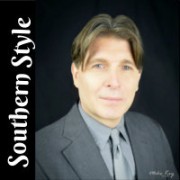Grits and Gravy
I was in seventh grade when I realized why the Yankees invaded the South.
Folks might say that it was to keep the Union together but the real reason behind it was they didn’t have grits and gravy and we did.
I was on a seventh grade trip to Washington, D.C. and sat myself down at one of those fancy uptown restaurants where they have more waiters than you can shake a stick at.
When the feller came over I spoke up and said, “I would like two eggs, a side of grits and biscuits with gravy. And don’t skimp on the gravy.”
That fellow just stood there with eyes wide open and said, “What is a grit?”
I knew that I was in trouble up to my elbows.
What is a grit? How do you explain something like that?
I fumbled around pretty good for a kid trying to explain how grits are made:
“Well you see, a grit comes from corn – when it is ground up. You cook grits in water and can serve them several different ways, some folks eat them with sugar on them, some folks like cheese in them and other folks eat the just plain with a little butter.”
He still just stared at me.
Finally I gave up and said, “Well if you don’t have grits what do you have?”
“We have hashbrowns,” he said.
I said that would be fine if he had some ketchup to go with them.
He then told me they didn’t have any biscuits but they had some toast.
He asked me if I still wanted brown gravy on my toast ‘cause “it normally goes on mashed potatoes.”
I told him I wanted some gravy made from grease drippings of bacon or sausage mixed with flour and a bit of milk. His eyes began to fog over as I tried to explain the recipe I had seen my grandmother and mother make morning after morning.
“Reach and get you a good handful of flour and drop it in the cast iron skillet with the droppings. Then add you a couple of pinches of black pepper and just enough milk not to make it into soup and brown it until it’s done.”
I finally surmised that it would be hopeless to try any further and besides, there were three others at the table that had to order and we had a bus to catch.
So I said, “Well you don’t have grits or biscuits or gravy; any chance on getting those eggs?”
He shook his head yes.
I asked, “Would you be so kind as to bring me those?”
He replied, “Would you like eggs Benedict, eggs Florentine or poached?”
I told him if he had to steal them I just wait until I got home.
The war’s been over 145 years and them Yankees are still stealling eggs from chicken coops.
Friends, I hope my story brought you a smile. I am smiling today too as I remember fondly one of the funniest Southern entertainers I looked up to in my life.
He was just 4 feet 8 inches tall, but my friend Charlie “Peanut” Faircloth entertained millions in his long career as an entertainer on radio, TV and stage beginning on the Mutual radio network in the 1940s. He helped launch Brenda Lee to stardom, eased along the career of Elvis Presley and gave work to numerous Hall of Famers such as “Rocky Top” composer Boudleaux Bryant, and Grammy winners such as Norman Blake. The Decca artist rose to national recording stardom in the 1950s beginning with the song “I’ll Sail My Ship Alone” but a lifetime of country, gospel and bluegrass recordings came afterwards. His best-known original song “Reindeer Boogie” won him a Gold Record when Trisha Yearwood recorded it, but my favorite and his most requested comedy piece was the “Chew Tobacco Spittune.” Peanut went home to be with the Lord March 16 at the age of 82. While you may not have known him, I am one of those artists he encouraged, so if I brought you a smile, in a way it is passed along from his input in me, mixed along with the lessons of my other mentors.





